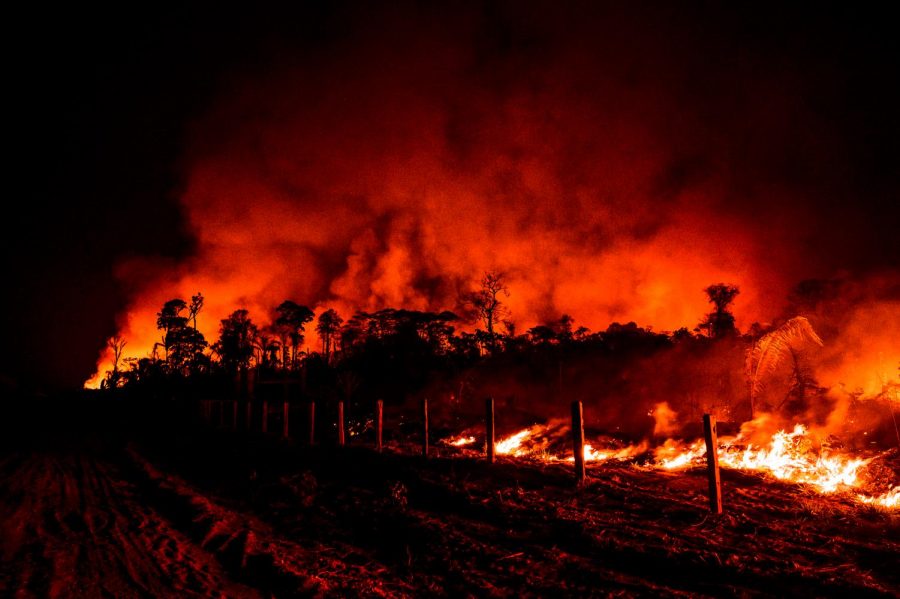Brazil to Blame for Burning Biodiversity
A rich expanse of land containing lush biodiversity and a mosaic of various ecological communities, the Amazon Rainforest runs through Brazil, Bolivia, and Peru. In the past couple of months, however, the Brazilian government has overlooked skyrocketing deforestation in the rainforest and instead sought after the economic benefits at the expense of the environment. The root cause of this massive deforestation can be traced back to the heavy reliance of the Brazilian economy on logging, grazing, and mining industries that profit from environmental destruction. The fires are not only generating large amounts of carbon dioxide and other air pollutants, but are simultaneously destroying hundreds of thousands of trees that could be absorbing greenhouse gases and releasing fresh air into the environment. International bodies, including the United Nations and the European Union, should put in place economic sanctions on Brazilian exports to encourage the Brazilian government to end the outrageous destruction of the environment and protect the indigenous tribes and other species that rely on it.
Skeptics of international policies say that sanctions are not efficient in forcing governments to take actions. In 2015, however, the European Union put similar sanctions on Iran for their uranium production that was environmentally detrimental, and it resulted in bringing not only greener production methods to the uranium production industry in Iran, but also reducing environmental destruction significantly. When the EU sanctioned Iran, it was able to use its weight as a global and powerful actor to broadcast the environmental crisis on the international stage, and drew various other countries, to support an end to Iran’s dangerous policies. Additionally, some say that Bolsonaro the Brazilian Prime Minister, and the Brazilian government are already addressing the fire and helping spot them. However, it is apparent that Bolsonaro’s agenda does not include environmental protection because his administration has been actively advocating for deregulation of the Amazon and turning a blind eye to illegal deforestation. The cattle and soy industries, both primary Brazillian exports, require large expansess of land for farming, gracing, and growth, and the country has turned to deforestation in order to create more usable land.
According to the INPE, Brazil’s National Space Research Institute, there has been a significant increase in the fires burning in 2019 in the Amazon by around 83% compared with 2018. Figures show that over 80,000 fires have caused the loss of around 20% of the rainforest in the past couple of months alone. By encouraging mining, logging, and other destructive practices, Bolsonaro, the Brazilian Prime Minister, and the Brazilian government has decided to ignore the egregious deforestation and prioritize economic gains that profit these destructive industries instead. Placing sanctions on Brazillian exports will place a blow on the Brazilian economy, because it is dependant on the EU for almost a quarter of its GDP, and force their hand in ending the destructive policies. As Brazil is ever reliant on the European Union, among other international trade partners, to keep its economy afloat, export sanctions could cripple their industries significantly.
It is becoming increasingly more important to place economic sanctions now, as the deforestation of the Amazon is posing a threat to indigenous communities that have long called the rainforest and its resources their home. As over 30, 000 fires have burned just in September, around 161 different indigenous tribes have been displaced, and the loss of around 11,000 square miles of rainforest forced the tribes that had occupied it to move. It is extremely important that the international community protects marginalized indigenous cultures and preserves all other species that rely on the forest, sanctions are looking more and more like the ideal solution.













